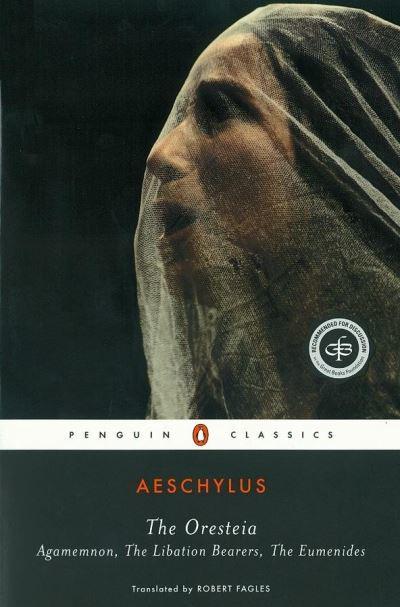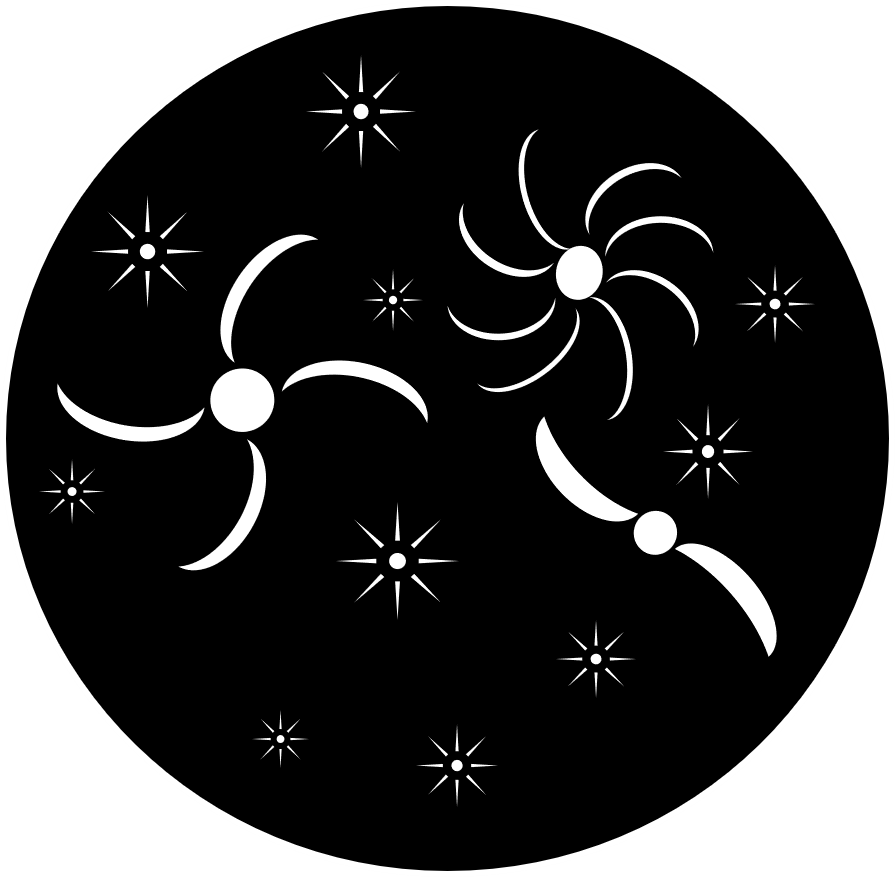
An essay I came across awhile back in the Wall Street Journal discussed the ‘technology’ of Greek tragedy. In the context of trauma treatment, this essay purported through various psychological frameworks (which may or may not be replicable) to explain that the performance of classic Greek tragedies, like The Oresteia, constitute an advanced restorative technology. That concept is by turns fascinating and jarring to me as a both a writer and consumer of literature, and it lingered in the back of my mind while I read Aeschylus’ rendition of The Oresteia as translated by Robert Fagles.
Many years ago, I made it through both Homer’s Odyssey and his Iliad (and that is certainly a pair of works worthy of a reread at some point). What I find most fascinating is how the stories form the foundation for almost the entire body of Hellenic storytelling, not to mention the basic archetypes for a majority of modern Western storytelling. Those epics serve as the point from which Aeschylus begins The Oresteia, and I would advise that you have some familiarity with those stories before you read this one. Unlike modern fiction, Greek tragedies (and comedies, for that matter) do not consciously provide worldbuilding or context, because to their original audiences these stories were part of a shared cultural narrative. Referencing Athena, the Furies, and Agemmenon would have been akin to a modern American referencing Superman, Darth Vader, and Abraham Lincoln – everyone would be expected to have an awareness of those characters and the basic events surrounding them.
In fact, it has been suggested that all of the surviving Greek plays are really just retellings of a core set of stories that the authors would adapt and reshape in various forms, which I think is a fascinating concept (and I could easily see someone in a thousand years looking at all of, for instance, the superhero genre, and thinking that we do the same thing). Regardless, The Oresteia merits a special entry because it survives in its entire trilogy form, which is apparently unique amongst the Greek tragedies which are preserved (although some scholars believe that these three-part tragedies were supposed to be completed by a fourth comedic part). The story is full of twists, turns, and, certainly, tragedy.
It’s true that The Oresteia is a tragedy, but it is worth remembering, especially if you would typically avoid anything categorized in that way, that Greek works are really only categorized as tragedies or comedies. I don’t enjoy what is today considered tragedy, but I did enjoy The Oresteia, especially the final part (Play? Act? Volume?) of the trilogy. While I’m not certain that in textual form I would quite describe the experience as ‘cathartic’ in the way that the technology view of such pieces would suggest, I can see how, in a well-performed and directed play, that emotionally cleansing effect could be produced.
Actually, upon finishing The Oresteia, I wished that I could see a stage adaptation of The Oresteia. I can tell you what the story was about, and I had some satisfaction in the ending, but it felt cold, distant in a way that I don’t feel with most of my reading, even reading of other works that were originally presented in a different form, like the Diné Bahaneʼ. That is not a critique of the translation; merely an observation that, in this particular instance, the full effect of the story did not cross mediums very well.
Despite that, I still think you should consider reading The Oresteia, and not just because it’s a classic. It contemplates complex questions, and it demonstrates once again how many sympathies there are between our modern world and the world of the ancient Greeks. Whether you think of this as a piece of ancient psychological technology to produce catharsis that modern scientists can barely understand, or simply as a compelling drama from history and one of the fundamental stories that gives rise to many others, I think you’ll find The Oresteia well worth reading.

2 thoughts on “The Oresteia Review”